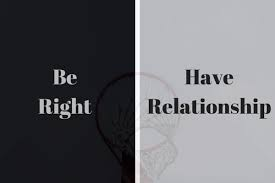The degree of civilization in a society can be judged by entering its prisons
~ Dostoyevsky, The House of the Dead
Lady of Shalott, William Holman Hunt
Stonewalling is the act of shutting a person out using physical separation, verbal silence or emotional disengagemnt. As the name implies, it is a defense used to put an unwanted person or situation on the other side of an impassable wall. It is a primitive practice and was used in ancient Greece to collectively reject a socially dangerous person by voting with bits of shard (or
ostraka, origin of the word ostracism) to elect the outcast, and goes back at least as far as the ancient Jewish practice of scapegoating if not earlier; to the casting out of Ishmael and Hagar in the desert (Genesis 21:14).
In intimate relationships, stonewalling is used (
85% of the time by men) to separate the stonewaller from his partner, usually in a situation of heightened emotional reactivity or conflict. The stonewaller typically justifies his behaviour as a response to feeling overwhelmed. Flooded with negative emotional energy (frustration, anger, jealousy, resentment, guilt or shame), the intention is to avoid fruther escalation and to "cool down". Unfortunately, this is usually achieved only for the one who leaves the situation whereas the deserted partner's feelings further escalate into frustration, powerlessness, hopelessness, rage and despair.
Although the stonewaller may be genuinely unaware of the deleterious effect of his behaviour on his partner, he might be using stonewalling as a strategy to get his partner to stop talking or behave in a different way; or he might be deliberately avoiding his partner and escaping accountability for his behaviour in order to pursue an addiction, affair or other guilty pleasure that excludes her. He might also be deliberately punishing and manipulating his partner in order to gain control over her or dictate the terms of their relationship*.
Stonewalling induces very high levels of anxiety in the abandoned partner whose agency in the relationship has been singlehandedly euthanased by the stonewaller. She naturally feels insignificant and devalued from the loss of freedom and dignity in the forced separation which often leads to depression, anxiety, despair and insomnia until the stonewalling ends, also a unilateral decision of the stonewaller.
Stonewalling 23 out of 24 hours a day for a long period of time is called, in prisons, solitary confinement of which Charles Dickens has aptly written:
...very few
men are capable of estimating the immense amount of torture and agony of this dreadful punishment (...) which no man has a right to inflict
upon his fellow creature. I hold this slow and daily tampering with the
mysteries of the brain to be immeasurably worse than any torture of the body;
and because its ghastly signs and tokens are not so palpable to the eye and
sense of touch as scars upon the flesh; because its wounds are not upon the
surface, and it extorts few cries that human ears can hear; therefore the more
I denounce it, as a secret punishment which slumbering humanity is not roused
up to stay.(Philadelphia, and its Solitary Prison, Charles Dickens, 1842)
It is no wonder John Gottman includes stonewalling in what he calls the "Four Horsemen" predicting divorce.
While conflict and emotional flooding should be de-escalated as rapidly as possible, and taking space is one good way of doing that, in order to preserve the relationship it needs to be done with civility, kindness and even compassion. It is unncessary to be rude, abrupt or unkind, or to prolong the agony by inflicting a long separation which is a cruel and avoidable punishment.
If emotional flooding makes it so that you are unable to stay present to your partner during a conversation or argument, simply tell them that you need to take a break. Tell them how much time you need and check in when that time has elapsed. If you need more time, say that but stay in touch and return as soon as possible. This is called being caring and accountable. It is not necessary to delve into a matter which may be triggering for you. But you may find that, after a break, you are able to hear your partner and mirror back what you hear without arguing. You can respond or not, as you choose. This works very well to defuse conflict. You can also postpone hearing out your partner on a topic that is difficult for you, but not indefinitely without your partner's agreement, as this would introduce another form of unilateral control over your partner and the relationship. Instead, mutually agree upon when and how to address hard topics.
There are many tools out there: I-statements, expressing needs, nonviolent communication, etc. It doesn't have to be complicated. Look it up on the net or ask advice from a certified couple/family therapist or other specialist trained in conflict resolution. There are many helpful tweaks that can smooth out tough conversations but there is not one good reason to stonewall.
* This is a more perverse form of stonewalling characteristic of narcissistically abusive relationships. A partner who is repeatedly abused in this way ends up walking on eggshells or fawning to avoid the dreaded punishment and, once the stonewalling is over, might compulsively proffer sex, apologies or forgiveness as a way to appease the abuser in a desperate bid for reconciliation, affection or emotional reconnection. This kind of behaviour is of course the tragic hallmark of a traumatically bonded partner.





